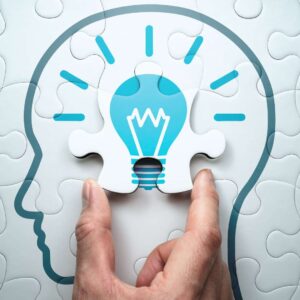Problem-Solving Skills in Students
Define problem-solving skills: Problem-solving skills refer to the ability to identify, analyze, and evaluate problems to find effective solutions.
Importance of developing problem-solving skills in students: Enhancing problem-solving skills is essential for students to navigate challenges in academics, work, and daily life.
Overview of the article’s content: This article aims to explore the significance of problem-solving skills in developing critical thinking, innovation, and academic success in students.

Understanding the Importance of Problem-Solving Skills
Why problem-solving skills are crucial for students’ academic and personal development: These skills empower students to think critically, make informed decisions, and adapt to diverse situations.
The role of problem-solving skills in modern education and workplaces: In today’s dynamic environments, problem-solving abilities are highly valued in educational settings and professional careers.
How problem-solving skills contribute to critical thinking and innovation: By honing problem-solving skills, students can enhance their analytical reasoning, creativity, and cognitive flexibility.
Characteristics of Effective Problem Solvers
Analytical thinking: Effective problem solvers excel in analyzing complex issues and identifying viable solutions.
Creativity and innovation: The ability to think creatively and innovate is crucial for approaching problems from unconventional perspectives.
Persistence and resilience: Successful problem solvers demonstrate persistence and resilience in overcoming obstacles and setbacks.
Collaboration and communication: Effective communication and collaboration skills are essential for working with others to solve problems efficiently.
Strategies for Developing Problem-Solving Skills in Students
Encouraging a growth mindset: developing a growth mindset helps students embrace challenges, learn from failures, and persist in problem-solving efforts.
Providing real-world problem-solving opportunities: Offering authentic experiences allows students to apply problem-solving techniques in practical situations.
Teaching problem-solving techniques and methodologies: Equipping students with diverse problem-solving approaches enhances their problem-solving capabilities.
Encouraging self-reflection and feedback: Reflection and feedback foster continuous improvement, helping students refine their problem-solving skills.
Benefits of Developing Problem-Solving Skills in Students
Improved academic performance: Enhanced problem-solving skills lead to improved academic outcomes and performance.
Enhanced critical thinking skills: Developing problem-solving abilities promotes critical thinking and analytical reasoning.
Better preparation for future careers: Proficient problem solvers are well-equipped to navigate challenges in future careers.
Increased confidence and self-esteem: Mastering problem-solving skills boosts students’ confidence and self-esteem levels.
Practical Tips for Cultivating Problem-Solving Skills
Encouraging Experimentation and Risk-Taking
Encourage students to think outside the box and try new approaches
Create a safe space where mistakes are viewed as learning opportunities
Emphasize the importance of taking calculated risks in problem solving
Developing a Supportive Learning Environment
Provide encouragement and positive reinforcement
Facilitate group discussions and peer collaboration
Offer guidance and mentorship to help students navigate challenges
Incorporating Technology and Interactive Learning Tools
Utilize educational apps and platforms to enhance problem-solving skills
Integrate interactive simulations and virtual experiments
Leverage online resources for self-paced learning and exploration
Integrating Problem-Solving Activities into Everyday Curriculum
Infuse problem-solving tasks into various subjects and assignments
Design projects that require critical thinking and creative solutions
Incorporate real-world scenarios to make learning relevant and engaging
Challenges and Solutions in Developing Problem-Solving Skills
Overcoming the Fear of Failure
Teach students that failure is a natural part of the learning process
Shift the focus from grades to growth and improvement
Encourage resilience and perseverance in the face of setbacks
Addressing Issues of Motivation and Engagement
Make problem-solving tasks interesting and relevant to students’ lives
Offer incentives and rewards for active participation and successful problem solving
Foster a sense of ownership and autonomy in tackling challenges
Providing Adequate Resources and Support for Educators
Offer professional development opportunities for teachers to enhance their problem-solving instruction
Ensure access to up-to-date tools, technology, and teaching materials
Establish a support network for educators to share best practices and seek guidance
Tailoring Approaches for Different Learning Styles and Abilities
Recognize and accommodate diverse learning preferences and strengths
Provide differentiated instruction to meet individual students’ needs
Offer multiple pathways for success in problem-solving tasks
Evaluating and Assessing Problem-Solving Skills
Different Methods of Assessing Problem-Solving Skills
Use rubrics and checklists to evaluate problem-solving processes and outcomes
Consider performance-based assessments such as projects and presentations
Incorporate self-assessment and peer evaluation to promote reflection and learning
Incorporating Assessments into the Curriculum
Integrate problem-solving assessments into regular coursework and evaluations
Align assessment methods with learning objectives and desired outcomes
Provide timely feedback to guide students’ progress and improvement
Providing Constructive Feedback to Students
Offer specific and actionable feedback on problem-solving approaches and solutions
Focus on strengths and areas for growth in students’ problem-solving skills
Encourage reflective practices to help students learn from feedback and enhance their abilities
Encouraging Lifelong Learning of Problem-Solving Skills
Importance of Continuous Skill Development
Emphasize the value of ongoing learning and skill refinement
Encourage students to seek out new challenges and opportunities for growth
Foster a mindset of continuous improvement and adaptation to changing circumstances
Providing Opportunities for Further Exploration and Growth
Offer extracurricular activities and enrichment programs focused on problem-solving
Create pathways for advanced study and interdisciplinary problem-solving experiences
Support students in pursuing their interests and expanding their problem-solving repertoire
Connecting Problem-Solving Skills to Personal and Professional Goals
Help students see the relevance of problem-solving skills in their everyday lives and future careers
Encourage students to set goals that involve applying problem-solving techniques
Empower students to take ownership of their learning and apply problem-solving skills to achieve their aspirations
FAQs on Developing Problem-Solving Skills in Students:
How can problem-solving skills be nurtured in students?
Problem-solving skills in students can be developed through activities that encourage critical thinking, experimentation, and collaboration. Providing real-world challenges and teaching problem-solving methodologies are effective strategies.
Why are problem-solving skills important for students?
Problem-solving skills are vital for students as they help in enhancing critical thinking, decision-making abilities, and cognitive flexibility. These skills are crucial for academic success, future career readiness, and overall personal development.
What are practical ways to cultivate problem-solving skills in students?
Practical ways to cultivate problem-solving skills include encouraging experimentation, developing a supportive learning environment, incorporating technology, and integrating problem-solving activities into the daily curriculum.
How can educators assess students’ problem-solving skills?
Educators can assess students’ problem-solving skills through various methods such as scenario-based assessments, project-based assignments, and problem-solving workshops. Providing constructive feedback is essential for students’ growth.
Conclusion:
Developing problem-solving skills in students is essential for their academic success and future readiness. By incorporating practical strategies, developing a supportive learning environment, and engaging students in real-world challenges, educators can empower students to become effective problem solvers. Encouraging continuous skill development and providing opportunities for growth are key to nurturing lifelong problem-solving abilities in students.





